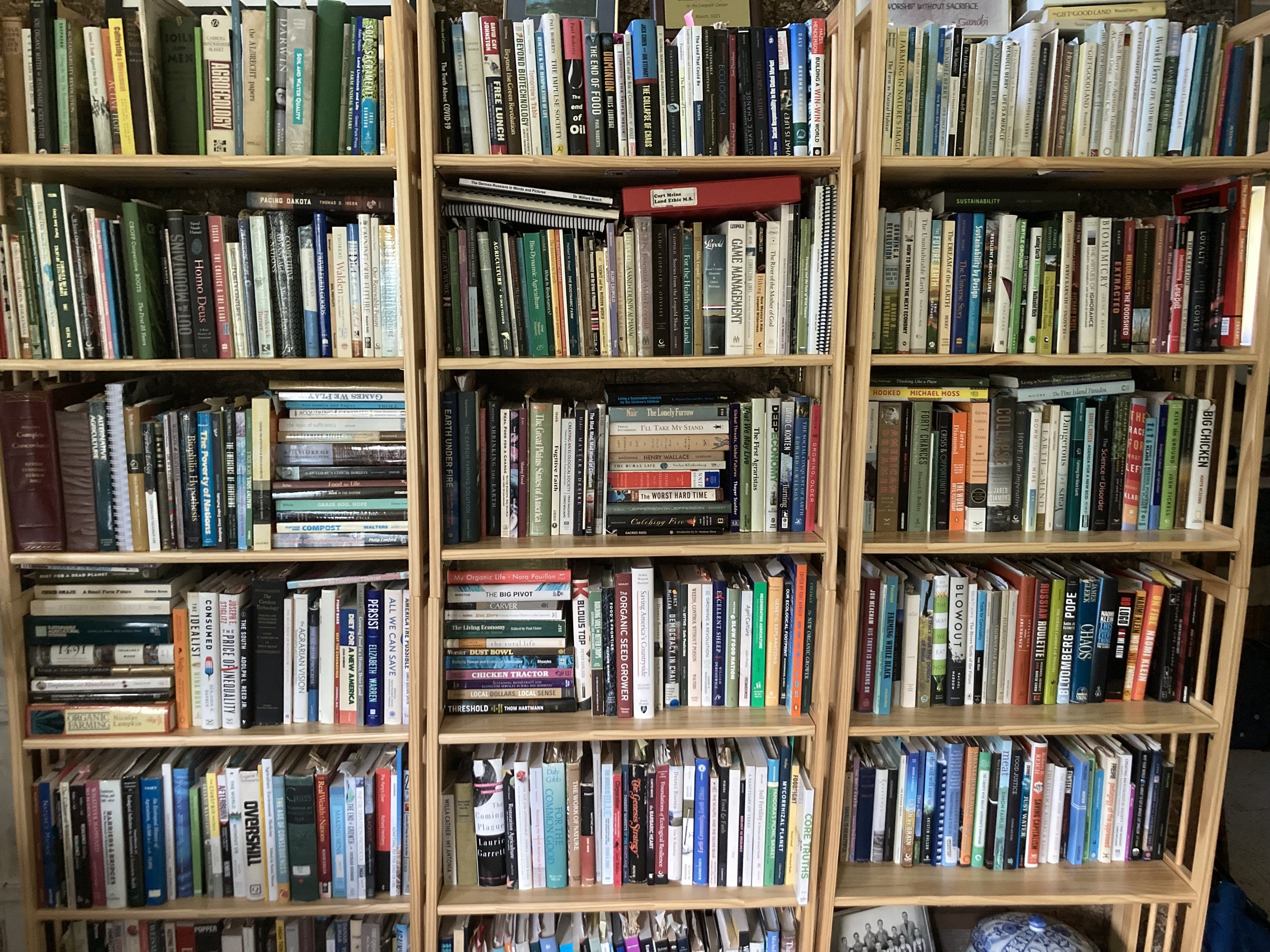Executive Director's Note for 2023 September Networker
Libraries. Books. Treasures.
I’ve been aghast at the book bans that conservative politicians and others are demanding at libraries across the country, my state of Iowa included. Let me whisper into your ear that so far none of the banned books are about the environment.
If they were going to ban environmental books, first on the list would probably be the Fracking Science Compendium that SEHN sponsors. Soon to be released, the ninth edition will continue the time-honored tradition of using scientific data to bear witness to the suffering caused by fracking and to challenge the lies and damage perpetrated by the fossil-fuel industry. Previous editions of the Compendium have been used in communities around the world to stop fracking.
Whether you read the Compendium or not, you know it is available in case you and your community are faced with fracking or any of its giant tentacles. I tell you this in the spirit of statistician Nassim Nicholas Taleb’s notion of the “antilibrary” which he used to describe the writer Umberto Eco’s 30,000 volume library. Taleb said that Eco recognized that the most valuable books in your library are those you haven’t read yet because they give you a sense of all you do not know.
In this issue of the Networker, Carmi Orenstein writes a litany of suffering that has been documented in the Compendium and how politicians have been bought off—so they ignore the cancers, birth defects, and respiratory ailments resulting from fracking. Why do some states and politicians heed the science and why do some ignore it?
In her column, Sandra Steingraber addresses the ethical obligation of scientists who do know the meaning of their research. She says,
… the duty to communicate our findings arises from an unspoken social compact between science and civil society. We don’t just set out to discover things about the natural world because they are personally fascinating to us (although don’t get me started about the operatic beauty of photosynthesis). We do the work because science is supposed to make life better. But the benefits of science are only realized if governments deriving their just powers from the consent of the governed listen to the science and, so informed, respond to the results.
Sandra and 400 fellow scientists recently wrote a letter to President Biden reminding him of his obligations to act on what is all but certain regarding climate change. They backed that letter up by turning out in force at the March to End Fossil Fuels in New York on September 17, 2023.
There is no excuse to continue business as usual given the science, the books that have been written (and read), the mounting evidence of damage from fracking and its climate impacts.
We owe it to future generations to prevent suffering, to use what we do know, and to have a deep respect for all we do not know. We each have a role in this. The scientists have played theirs, now it is up to the politicians, even if they haven’t read the books the scientists have written. Not acting on this knowledge is the equivalent of burning them.
Carolyn Raffensperger
Executive Director, SEHN


